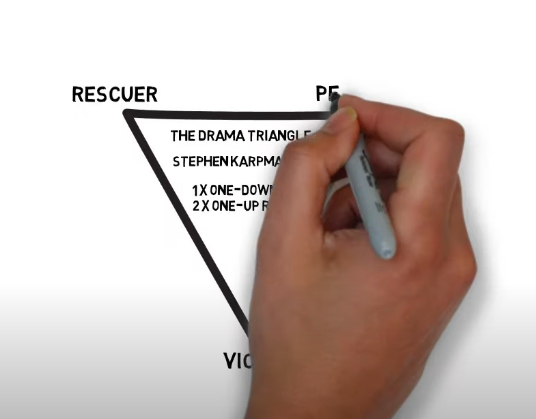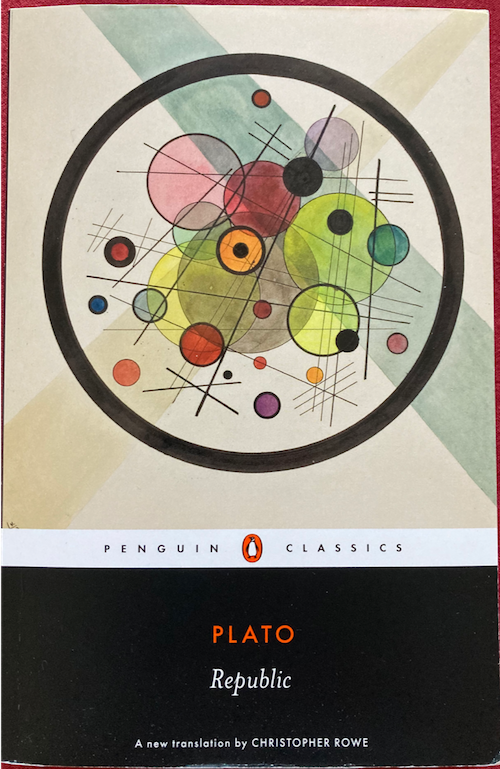|
Following on from my last blog about triangulating relationships, here's a question: Does the Labour party think of the people it represents mainly as victims, and itself as their rescuer? I thought of this on reading a Guardian article published recently: “More than half of UK’s black children live in poverty, analysis shows” (link to article at the bottom) the results of research conducted by the Labour Party into child poverty in the UK.
I had to get to the seventh paragraph to find the section that seemed most important to me. Worth repeating here as I’m a fairly typical Guardian reader — female, white, aged 60, left-leaning, privileged background, believe in social democracy. “In 2019-20 4.3 million children were living in households in poverty. They accounted for 31% of the UK’s 14 million children.” Read it again. Of ALL children and young adults (under the age of 19 and still in education), 31% live in poverty. But the article lead from the top with the far worse problems for some of the children in the whole group. Yes, it is important to look at the breakdown within ethnic groups and it is distressing to know how much worse it is for some. But are they the victims of cruel Britain (the Tories)? Is Labour going to charge in, a knight on a white horse, and rescue them? Nanny is Here! To the Rescue! The mental health of the Labour party will improve if it stops thinking of itself as the rescuer of victims. Build a more level playing field. Understand that some people have not yet realised their potential, and think of them as creators. Then act like a good coach (instead of rescuer). Help the creators to become valuable members of society who contribute to themselves and to the common good. Think of the Conservatives as challengers (not as persecutors) who question the assumption that the state should always act as the parent or rescuer of the poor. Back to the research conducted by Labour and reported by the Guardian. Levels of poverty within ethnic groups are important to recognise. But it could also be a reinforcement for people living in poverty as feeling like victims. Too bad, I’m black. I’m 60% likely to be poor. And on the other side, Phew! Glad I’m white, only 26% chance of being poor. Meanwhile, on top of the pile, I’m Chinese. I’m 12% likely to be poor. I’m definitely one up! (Perhaps Labour could be asking the Chinese people who live in the UK why they think are so successful at avoiding poverty? Is it because they are largely stoical? Don't think. Take action. Find honour in the daily effort?) By over focusing on diversity and the victimhood of some sectors in society Labour is losing itself in the good feelings of being a rescuer. And the Guardian is perhaps feeding into the same narrative. © Alison Hackett 21 Jan 2022 https://www.theguardian.com/world/2022/jan/02/more-than-half-of-uks-black-children-live-in-poverty-analysis-shows The opinions expressed in this blog are the author's own. Please acknowledge the author if sharing. In the last two years I have struggled with relationship distress in my circle of family and friends. I am not alone. We are living in a more-authoritarian-than-libertarian pandemic world. Much is altered, whether from having contracted Covid19 and coping with a new-to-the-world nasty disease, or the fragility we experience in our relationships due to the fear and rigidity around it. This is frightening us at both the macro (government/media messaging) and the micro level (personal relationships).
I recently went on a self-help dive into the online ether regarding relationships. One of the things I learnt was that relationships will often triangulate into the dysfunctional roles of victim, rescuer and persecutor. It was first described by Stephen Karpman in 1968, illustrating a power game that emerges between the three participants in the triangle. It results in a two-up/one-down dynamic between the players: the "up" roles are rescuer and persecutor. The "down" role is victim. The roles, over time will usually become interchangeable, but eventually, in a downward spiral, everyone begins to feel like a victim — not a good feeling. This is described as a Transactional Analysis of Games. Furthermore, it has been observed that each of us tends to have a ‘default’ or a ‘go-to’ role in these triangles. Triangular interactions can cope with a lot more conflict than linear (1-1) relationships and so, it is explained, this is why they so often occur. The good news is that the negative roles of victim, rescuer and persecutor can be changed to the more positive ones of creator, coach and challenger in a more balanced 1-1-1 dynamic. No one is always “up” (feeling superior) and no one is always “down” (feeling inferior). A more level playing field and a much healthier way to be relating to the people in your life. I love this elegant, easy-to-digest illustration (on YouTube) of The Drama Triangle and how you can bring change for the better to your own relationships. Check it out, but remember, you can only ever change yourself and the role you choose to play ;~) In writing the Republic, almost 2400 years ago, Plato considers the meaning of justice and whether the just man is happier than the unjust man. In a Socratic dialogue (a sort of old fashioned Q&A) the natures of four unjust constitutions are considered and the debate comes down, in the end, on the side of a utopian aristocratic state ruled by a philosopher-king.
The pros and cons of timocracy, oligarchy, democracy, and tyranny are discussed — all through the form of a dialogue. It is argued that a society will decay and pass through each type of government, ending with rule by tyranny. In an aristocracy the governing class — 'wisdom-loving' aristocrats — are not allowed to own property. In the next level down — a timocracy — the 'spirited' ruling class (who are warriors or generals; an example is Ancient Sparta) are allowed to own property. Thus they start to accumulate and waste money which "begins to be prized over virtue" and the leaders then seek to change the law to support the materialistic lust of the citizens (the freedom to be rich?). And so the descent towards an oligarchy ('desiring') where the governing class starts to change the law to ensure they hold onto political power. Remind you of anywhere? An oligarchy, with the widening gap between rich and poor, culminates in a revolt by the majority, the underclass, who establish a democracy with its focus on maximum freedoms and power being distributed fairly. The democracy is also led by desire (or want), like an oligarchy, but in a more "undisciplined, unrestrained way". And so the populist democratic government will lead to an ochlocracy (or mob rule), fuelled by fear of the oligarchy "which a clever demagogue can exploit, take power and establish tyranny." Remind you of anyone? In a tyrannical system of government, as wikipedia notes, "the city is enslaved to the tyrant, who uses his guards to remove the best social elements and individuals from the city to retain power (since they pose a threat), while leaving the worst. He will also provoke warfare to consolidate his position as leader." Where are we now? Does any of this apply? The nation members of the permanent security council of the UN are a gang of five: China, France, Russia, the UK, the US. The first is an anti-democratic one-party state; the second a semi-presidential republic; the third, Russia, a constitutional republic led by an unscrupulous authoritarian; the fourth is a parliamentary constitutional monarchy ruled (at present) by timocrats (the Tories); the fifth, the U.S. is a federal presidential constitutional republic and looks rather like an oligarchy (greed is good). The end stage of Trump's rule, culminated in riots in the capitol, and looks disturbingly like the tyranny Plato describes. Plato’s argument is that an aristocratic system (with a good-guy philosopher king) will provide the best form of government: one grounded on wisdom, reason, justice, fairness. Of course this system he envisaged relied on slavery existing too (it was written in a time of slavery 375BC). So, perhaps, not so great after all. Would that the UN security council was led by philosopher-kings. Xi, Macron, Putin, Johnson, Biden. Only two of these appear to have the better natures we might long for in our leaders. The concept of a UN permanent security council is a cold war madness we must abandon. Let Gaia, our precious Earth, have a sixth wise-philosopher seat on the council, and give her 51% control of the vote. Information and quotes from Wikipedia |
AuthorAlison Hackett — Director and founder of 21st Century Renaissance; author of The Visual Time Traveller 500 Years of History, Art and Science in 100 Unique Designs Archives
February 2023
Categories |
ReviewsThe Visual Time Traveller
This is a labour of love, insanity, beauty and, perhaps, an attempt to reintegrate history, art and science together again. Simon Cocking Irish Tech News Crabbing Her range of language is both staccato and soft, in succinct verse, which encourages you to read this aloud, truly the best way to engage in the emotional depth of a poem. Deirdre Conroy Sunday Independent Poetic Licence in a Time of Corona Your poems tell us all we need to know Ryan Tubridy, RTE Radio podcast |
CONTACTNOT RETAIL
21st Century Renaissance The Glasshouse Harbour Court, George's Place Dun Laoghaire, A96 R8CT Co. Dublin, Ireland E [email protected] VAT number 3761911TH |
© Twenty-First Century Renaissance Ltd 2022 Associate member of Publishing Ireland; Member of Independent Publisher's Guild All rights reserved



 RSS Feed
RSS Feed